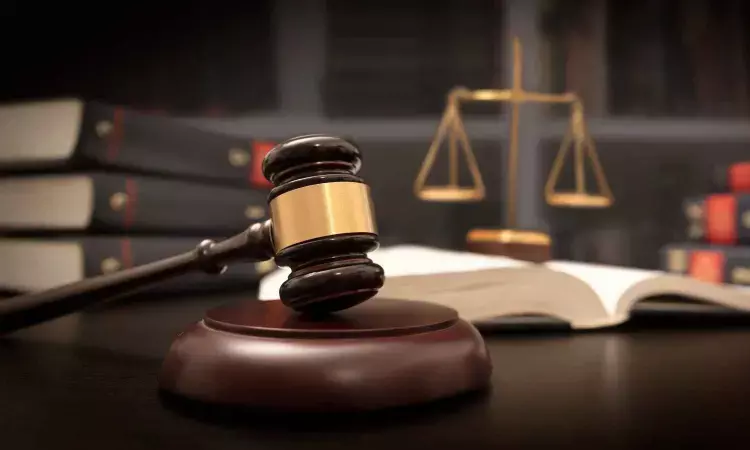- Home
- Medical news & Guidelines
- Anesthesiology
- Cardiology and CTVS
- Critical Care
- Dentistry
- Dermatology
- Diabetes and Endocrinology
- ENT
- Gastroenterology
- Medicine
- Nephrology
- Neurology
- Obstretics-Gynaecology
- Oncology
- Ophthalmology
- Orthopaedics
- Pediatrics-Neonatology
- Psychiatry
- Pulmonology
- Radiology
- Surgery
- Urology
- Laboratory Medicine
- Diet
- Nursing
- Paramedical
- Physiotherapy
- Health news
- Fact Check
- Bone Health Fact Check
- Brain Health Fact Check
- Cancer Related Fact Check
- Child Care Fact Check
- Dental and oral health fact check
- Diabetes and metabolic health fact check
- Diet and Nutrition Fact Check
- Eye and ENT Care Fact Check
- Fitness fact check
- Gut health fact check
- Heart health fact check
- Kidney health fact check
- Medical education fact check
- Men's health fact check
- Respiratory fact check
- Skin and hair care fact check
- Vaccine and Immunization fact check
- Women's health fact check
- AYUSH
- State News
- Andaman and Nicobar Islands
- Andhra Pradesh
- Arunachal Pradesh
- Assam
- Bihar
- Chandigarh
- Chattisgarh
- Dadra and Nagar Haveli
- Daman and Diu
- Delhi
- Goa
- Gujarat
- Haryana
- Himachal Pradesh
- Jammu & Kashmir
- Jharkhand
- Karnataka
- Kerala
- Ladakh
- Lakshadweep
- Madhya Pradesh
- Maharashtra
- Manipur
- Meghalaya
- Mizoram
- Nagaland
- Odisha
- Puducherry
- Punjab
- Rajasthan
- Sikkim
- Tamil Nadu
- Telangana
- Tripura
- Uttar Pradesh
- Uttrakhand
- West Bengal
- Medical Education
- Industry
Can doctors use digital signatures in medical documents? Delhi HC asks Govt to decide

New Delhi: To safeguard the authenticity of medical records, the Delhi High Court on Friday directed the Central and Delhi governments to review a petition requesting the establishment of clear guidelines to prevent the illegal use of scanned or fake signatures, including JPEG, PNG, and BMP files, being passed off as legitimate digital signatures in medical documents.
The petition highlighted their use in authenticating medical reports, prescriptions, certificates, and other documents in medical labs, hospitals, clinics, and healthcare facilities.
According to an ANI report, it was submitted that despite the petitioner submitting representations to the Health Department, GNCTD via email on August 4, and to other respondents via email on August 13, the respondents have neither acknowledged nor addressed the representation.
The matter was heard on Friday by a bench led by Chief Justice Manmohan, with Justice Tushar Rao Gedela. The court granted the respondent authorities additional time to decide on the representation.
Also Read:Maha: Doctor allegedly prepares fake documents to show delivery of child, booked
It stated that the issue raised in this petition concerns the unauthorized use of scanned images or JPG files of an individual’s inked signature, facsimile seals, or hand signatures (made on a tablet using a finger or stylus) for authenticating lab reports, prescriptions, medical certificates, notifications, and similar documents in medical diagnostic laboratories, hospitals, clinics, and other clinical establishments.
This practice, carried out by both qualified and unqualified medical personnel, is a matter of national concern and calls for the issuance of central guidelines.
The plea moved by Dr Rohit Jain through Advocate Shashank Deo Sudhi stated that a patient’s test results in a laboratory must be checked, clinically correlated, and authenticated by a Registered Medical Practitioner (RMP) with recognized medical qualifications before the report is released. The RMP is responsible for the accuracy of the report and is medicolegally liable for its contents.
According to a reply to an RTI request by the petitioner dated December 3, 2019, the erstwhile Medical Council of India (MCI) stated that the physical presence of the doctor is required to sign reports.
However, MCI regulations are silent on the validity of digital signatures on lab reports. In the current work environment, laboratory reports are digitally authenticated on computerized systems. The doctor logs into the system using their user ID and password, and the reports are authenticated by the doctor. Once the work is completed, the doctor must log out of the system, news agency ANI reported.
Laboratories store pictures of doctors’ signatures in formats like jpeg or png in their computerized systems. These digital images of the signatures are then pasted onto authenticated reports when printing or creating PDF versions.
It is also relevant to note that doctors sometimes share their user ID and password with others, allowing them to authenticate reports on the doctor’s behalf. Doctors may occasionally visit the laboratories but allow their associates to use their digital signatures without the doctor reviewing the reports, the plea read.
In some cases, even after a doctor resigns from a laboratory, their digital signature continues to be used by the laboratory, effectively allowing the signature to be applied in the doctor’s absence, plea read
Also Read:Fake Registration of Doctors: Committee finds suspicious documents, Sends Verification Team to 3 States
Kajal Rajput joined Medical Dialogues as an Correspondent for the Latest Health News Section in 2019. She holds a Bachelor's degree in Arts from University of Delhi. She manly covers all the updates in health news, hospitals, doctors news, government policies and Health Ministry. She can be contacted at editorial@medicaldialogues.in Contact no. 011-43720751


